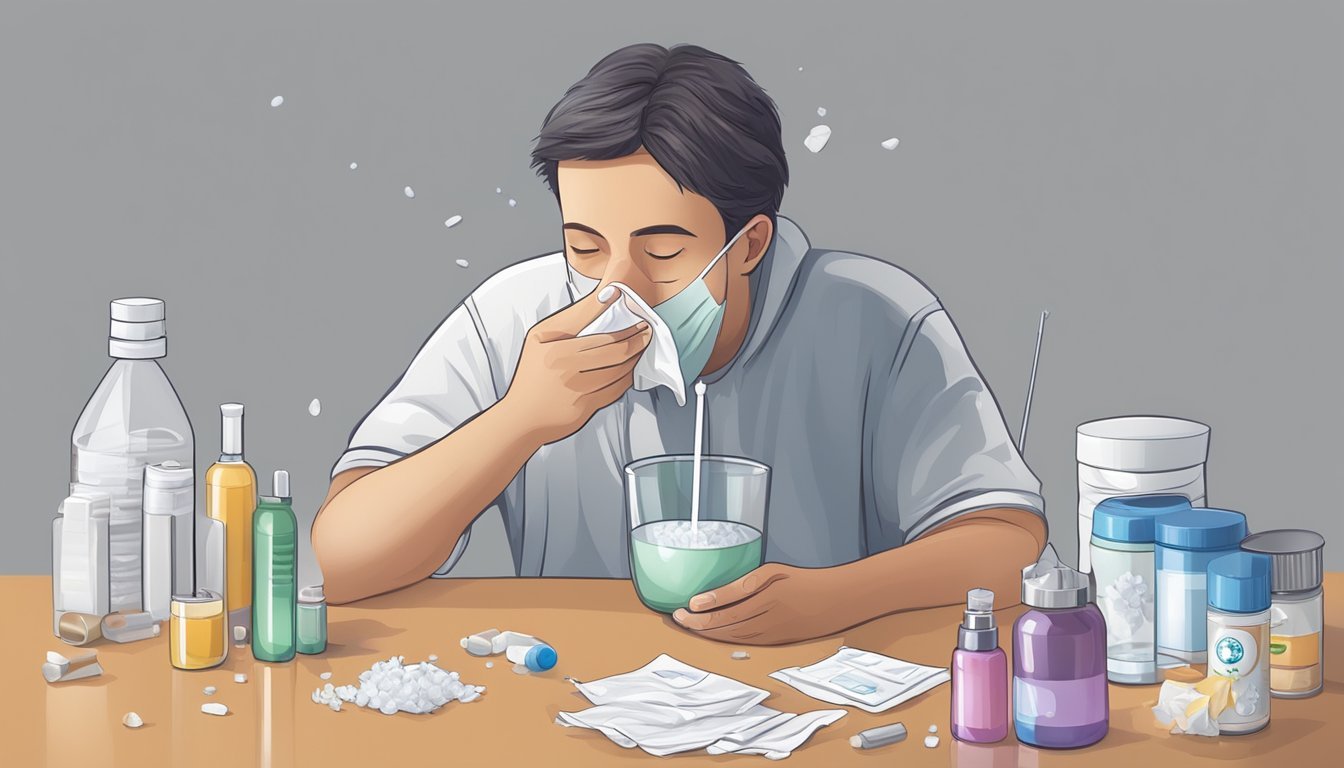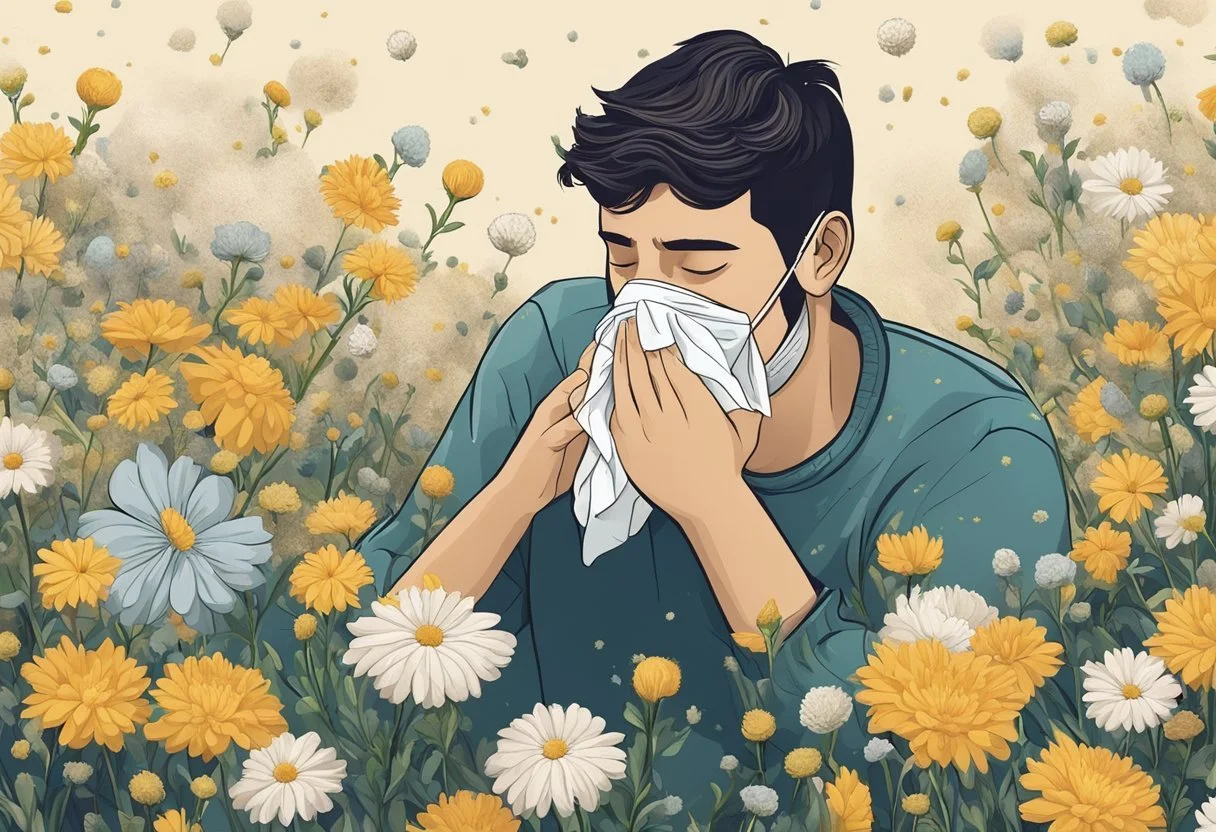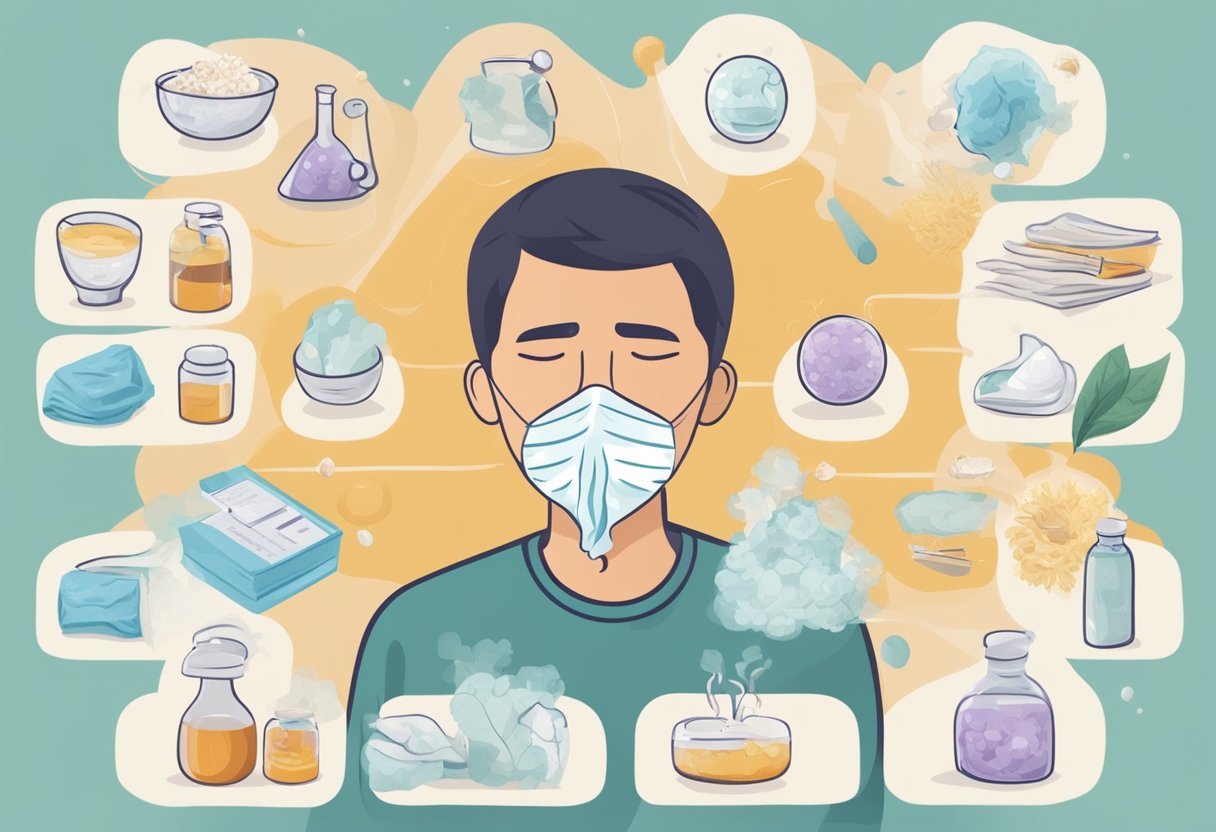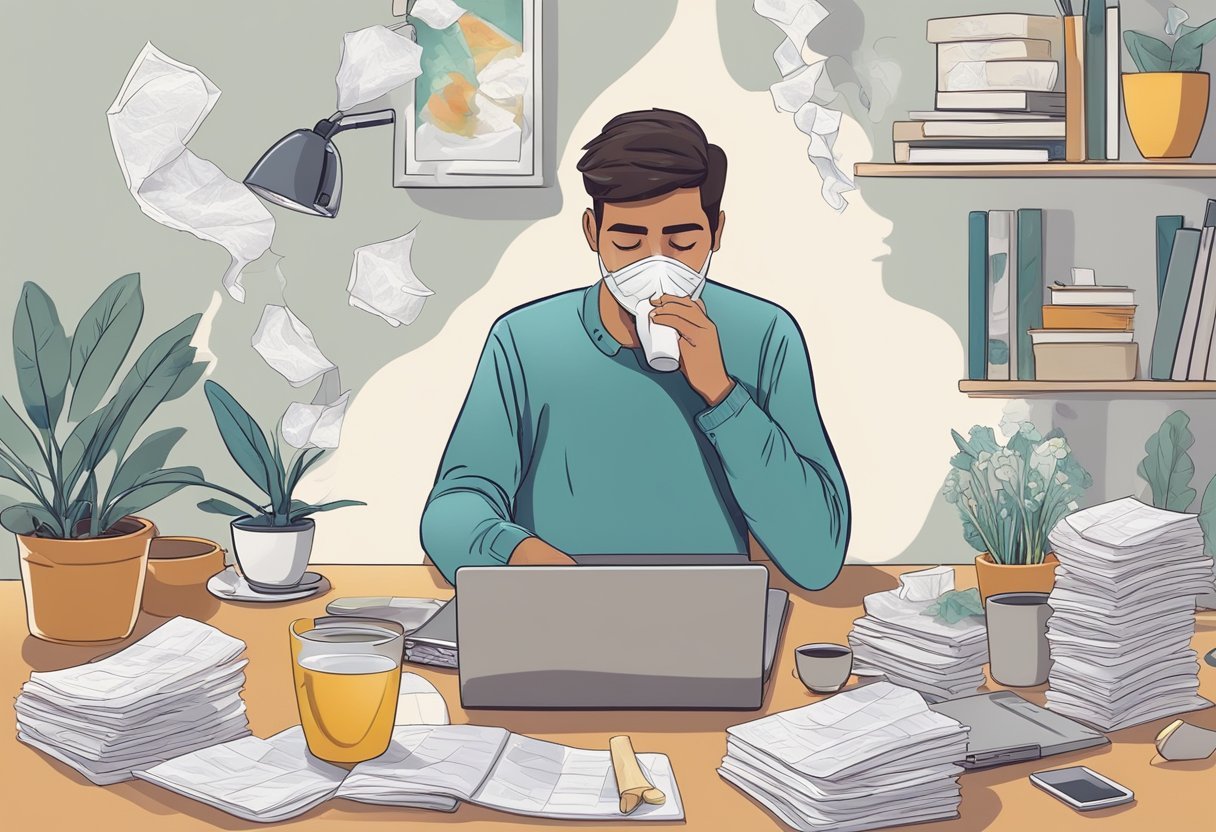Runny Nose
Symptoms, Causes, and Home Remedies
Discover > Health Conditions > Runny Nose
A runny nose, medically known as rhinorrhea, is a common condition that affects individuals of all ages. It is characterized by the excessive production of mucus in the nasal passage, which can cause discomfort and irritation. This ailment is often a symptom of other underlying health issues, such as allergies, infections, or environmental factors.
Understanding the various causes and symptoms of a runny nose is essential in determining the most suitable treatment methods. Additionally, many individuals prefer to opt for home remedies that can provide relief and reduce nasal congestion without turning to over-the-counter medications.
In this article, we will explore the common causes and symptoms associated with a runny nose, as well as some effective home remedies that can alleviate the discomfort. By gaining a deeper understanding of rhinorrhea, individuals can take the necessary steps towards better managing their symptoms and maintaining overall health.
Understanding Runny Nose
A runny nose, also known as rhinorrhea, is a common symptom experienced by people of all ages. It occurs when the nasal tissues and blood vessels produce excess mucus, which then flows from the nostrils or down the back of the throat. There are a variety of factors that can cause a runny nose, including colds, flu, allergies, and more. In this section, we will delve into the symptoms and causes of a runny nose.
Symptoms
A runny nose can manifest itself in several ways, and the symptoms can vary depending on the underlying cause. Some common symptoms include:
Excess mucus: The most obvious symptom, a clear or thick discharge from the nostrils or down the back of the throat.
Nasal congestion: Swelling and inflammation of nasal tissues may cause difficulty in breathing through the nose.
Sneezing: A reflex action that expels air through the nose and mouth.
Depending on the cause, additional symptoms may also be present, such as:
Itchy or watery eyes: Often associated with allergic rhinitis (hay fever).
Sore throat: Caused by postnasal drip or viral infections like the cold or flu.
Sinus pressure or pain: Resulting from inflammation or infection of the sinuses (sinusitis).
Causes
There are various factors that can contribute to a runny nose. Understanding the cause can help determine the appropriate course of treatment. Some common causes include:
Common cold: A viral infection that affects the upper respiratory system, causing symptoms such as a runny nose, congestion, and sore throat.
Influenza (flu): A more severe viral infection with symptoms similar to the cold, but also including fever, body aches, and fatigue.
Allergies: Allergic rhinitis occurs when the immune system overreacts to harmless substances like pollen, dust, or pet dander.
Rhinitis: Inflammation of the nasal lining that can be triggered by various factors, including infections and irritants like smoke or chemicals.
Sinusitis: Inflammation or infection of the sinuses, often accompanied by nasal congestion and sinus pressure or pain.
In some cases, a runny nose may be caused by a combination of these factors. Identifying and addressing the cause is crucial for effectively managing the symptoms.
Identifying Triggers
To effectively manage a runny nose, it's essential to identify potential triggers causing your symptoms. In this section, we will discuss two main categories: allergens and environmental factors.
Allergens
Allergens are substances that can cause an allergic reaction, leading to a runny nose. Common allergens include:
Pollen: Pollen from plants, grasses, and trees can trigger nasal allergies. During pollen seasons, it's essential to minimize outdoor exposure and keep windows closed to avoid exposure.
Dust: Dust mites present in household dust can cause a runny nose. Regular vacuuming and dusting can help reduce the amount of dust in your home.
Mold: Mold spores thrive in damp and humid environments and can cause allergic reactions. To minimize exposure, maintain proper indoor humidity levels and promptly address any water leaks or damp areas.
Pet dander: People can be allergic to proteins found in pet skin flakes, saliva, or urine. Regularly grooming your pet and keeping them out of allergen-sensitive areas, such as the bedroom, can help minimize exposure.
Environmental Factors
Environmental factors that can cause a runny nose include:
Smoke: Smoke from tobacco products, wood-burning fireplaces, and even outdoor wildfires can irritate nasal passages, leading to a runny nose. It's crucial to minimize exposure to smoke, whether by quitting smoking or using air purifiers indoors.
Temperature and humidity changes: Sudden changes in temperature or humidity can cause nasal congestion and a runny nose. To mitigate these effects, try to maintain a consistent indoor environment and gradually acclimate to changes in outdoor conditions.
Identifying your specific triggers can help you take steps to minimize exposure and improve your symptoms. Remember to consult with a healthcare professional if your runny nose persists or worsens, as they can provide personalized recommendations and potential treatments.
Medical Insight
When to See a Doctor
A runny nose is a common symptom of various conditions, such as allergies, viral infections, or bacterial infections. In most cases, a runny nose can be treated at home using over-the-counter medications and natural remedies. However, there are certain situations where seeking medical attention is necessary for a proper assessment:
If the runny nose lasts longer than 10 days
If the nasal discharge is yellow or green and accompanied by facial pain or a high fever
If there is difficulty breathing, wheezing, or chest tightness
If the condition significantly affects the quality of life, including sleep and daily activities
It's essential to consult a healthcare professional in these scenarios, as they can help identify the underlying cause and recommend appropriate treatment options.
Diagnostic Procedures
To determine the root cause of a runny nose, a doctor may employ various diagnostic procedures. The diagnostic process often starts with a thorough discussion of the patient's symptoms, medical history, and potential triggers. Depending on the suspected cause of the runny nose, a doctor may perform:
Physical examination: This may include examining the patient's nasal passages, sinuses, and throat, focusing on signs of inflammation or infection.
Allergy tests: If allergies are suspected, the doctor may recommend skin or blood tests to identify specific allergens.
Nasal cultures: In case of a suspected bacterial infection, a nasal swab can be taken and cultured to identify the bacteria type.
Imaging tests: If sinusitis or other sinus-related issues are suspected, the doctor may request X-rays or CT scans of the patient's sinuses.
Once the cause is identified, the doctor will recommend appropriate treatment that may include medications such as antihistamines, decongestants, antibiotics, or immunotherapy. Furthermore, the doctor may suggest lifestyle changes or medications to strengthen the immune system, helping patients prevent recurrent viral or bacterial infections.
Home Remedies and Self-Care
Home Treatments
Rest: Ensure adequate rest to allow your body to recover and heal itself.
Hydration: Drink plenty of fluids, including water, warm broths, and tea to stay hydrated and thin mucus.
Steam: Inhale steam from a bowl of hot water or take a warm shower to clear nasal passages.
Warm Compress: Apply a warm compress on the forehead and nasal area to relieve sinus pressure.
Neti Pot: Use a neti pot to flush out mucus and allergens from your nose by pouring a saline solution through the nasal passages.
Saline Nasal Spray: Use over-the-counter saline nasal sprays to moisturize and help clear up congestion.
Humidifier: Use a humidifier in your room to add moisture to the air, which can help your nasal passages stay moist and promote easier breathing.
Lifestyle Adjustments
Maintain a clean environment: Reduce allergens in your living space by vacuuming regularly, changing air filters, and washing bedding.
Avoid exposure to irritants: Stay away from cigarette smoke, pollutants, and harsh chemicals that can irritate the nasal passages.
Elevate your head while sleeping: Use a wedge pillow or prop yourself up with extra pillows to help reduce nasal congestion when resting.
Practice nasal hygiene: Clean your nose with soap and water regularly to prevent the buildup of germs and bacteria.
Stay away from triggers: If you know the cause of your runny nose (ex: certain foods or allergens), avoid these triggers where possible.
Conventional Treatments
Medications
There are several medications available that can help with a runny nose.
Antihistamines: As the name suggests, antihistamines are used to combat the effects of histamine, which is released during an allergic reaction and causes symptoms like a runny nose. Examples of antihistamines include cetirizine, loratadine, and fexofenadine. It's important to note that antihistamines may cause drowsiness.
Decongestants: These medications help to reduce nasal congestion by narrowing the blood vessels in the nasal passages. Decongestants such as pseudoephedrine and phenylephrine can be taken orally, while oxymetazoline and xylometazoline come in the form of nasal sprays. Decongestants should not be used for more than three days, as prolonged use can cause a rebound effect and worsen symptoms.
Nasal Sprays: Apart from decongestant nasal sprays, there are other types of nasal sprays that can help with a runny nose. Corticosteroid nasal sprays, such as fluticasone and budesonide, can help reduce inflammation and alleviate a runny nose caused by allergies.
Antibiotics: In cases where the runny nose is caused by a bacterial infection, a healthcare provider may prescribe antibiotics to treat the underlying infection. However, antibiotics are not effective against viral infections, which are a common cause of runny noses.
Alternative Therapies
Alongside conventional medication, some alternative therapies may help alleviate the symptoms of a runny nose. These include:
Essential oils: Inhaling certain essential oils, like eucalyptus, peppermint, and lavender, may help relieve nasal congestion and reduce inflammation. A few drops of the essential oil can be added to a bowl of hot water or a diffuser for inhalation.
Herbs: Some herbs have properties that may help alleviate a runny nose. For example, butterbur has been found to possess anti-inflammatory properties, while quercetin, a flavonoid found in fruits and vegetables, may have antihistamine effects. It is important to consult a healthcare provider before starting any herbal remedy, as they may interact with other medications or cause side effects.
By exploring a combination of conventional treatments and alternative therapies, individuals suffering from a runny nose may find relief from their symptoms. It is essential to consult a healthcare provider for a proper diagnosis and to recommend the most appropriate course of treatment for the specific situation.
Prevention Strategies
Avoiding Allergens
One of the key aspects of preventing a runny nose is avoiding allergens. Allergens are substances that can cause an allergic reaction, leading to a runny nose and other symptoms. Some common allergens include pollen, dust mites, mold, pet dander, and food. Here are some tips to help you reduce exposure to allergens:
Keep your living space clean: Ensure regular vacuuming and dusting to eliminate dust mites and mold.
Control indoor humidity: Using a dehumidifier or air conditioner, maintain humidity levels around 30%-50% to prevent mold growth.
Limit outdoor exposure during high pollen seasons: Check the daily pollen count and avoid going outside on days with high counts, or wear a mask to help filter the air.
Strengthening Immunity
A strong immune system is essential to fight off infections, like cold and flu, which can cause a runny nose. Here are some ways to help strengthen your immunity:
Eat a balanced diet: Consume a variety of fruits, vegetables, whole grains, lean proteins, and healthy fats to provide the necessary nutrients.
Get regular exercise: Aim for at least 150 minutes of moderate-intensity exercise per week to improve overall health and boost the immune system.
Prioritize sleep: Ensure you have enough rest, aiming for 7-9 hours of sleep per night.
Manage stress: Incorporate stress-reduction techniques, such as deep breathing, meditation, or yoga, into your daily routine.
In summary, the keys to preventing a runny nose involve avoiding allergens and strengthening the immune system through a healthy lifestyle. By following these strategies, you can better protect yourself against runny nose-causing factors and maintain your overall well-being.
Complications and Risks
Acute Complications
A runny nose may seem like a minor inconvenience, but if left untreated, it can lead to more serious health issues. One such acute complication is a sinus infection. When mucus accumulates in the sinus cavities, it can create a breeding ground for bacteria, leading to infection. Symptoms of a sinus infection may include facial pain, yellow or green nasal discharge, and fever.
Another potential risk is the development of nasal polyps. These are soft, non-cancerous growths that form inside the nasal passages or sinuses due to chronic inflammation. Common symptoms of nasal polyps are a stuffy nose, loss of smell, and frequent sinus infections.
Chronic Conditions
In some cases, a persistent runny nose may also contribute to the development of asthma. Asthma is a chronic respiratory condition characterized by inflamed airways and difficulty breathing. A prolonged runny nose can cause inflammation in the respiratory system, increasing the risk of an asthma attack.
To summarize, a runny nose may lead to:
Sinus infection: caused by bacterial growth in mucus-filled sinuses.
Nasal polyps: growths in the nasal passages due to chronic inflammation.
Asthma: a respiratory condition exacerbated by persistent runny nose.
It's important to address a runny nose early to prevent these potential complications and maintain overall respiratory health.
Special Considerations
Infants and Children
In infants and children, special attention is required when dealing with a runny nose. Children's immune systems are still developing, making them more susceptible to infections, resulting in symptoms such as a sore throat, fever, and fatigue. Some home remedies that can alleviate discomfort in children include:
Encouraging ample fluid intake
Using saline spray or drops for nasal congestion
Elevating the head while sleeping to ease breathing
Caution: Over-the-counter cold medications are not recommended for children under the age of 4, as they may cause serious side effects.
Pregnancy and Elderly
During pregnancy, it is essential to consult a healthcare professional before using any medications for a runny nose, as some treatments may have adverse effects on the developing fetus. Home remedies that can be safely employed during pregnancy include:
Staying well-hydrated
Using saline nasal sprays or drops
Sleeping with extra pillows for elevation
Ingesting warm liquids to soothe a sore throat
For the elderly, a weakened immune system may lead to complications from a runny nose. It is crucial to closely monitor the symptoms in this population and seek medical advice if symptoms worsen or persist beyond a week. When caring for elderly individuals with a runny nose, consider the following:
Encourage proper hand hygiene to prevent infection spread
Ensure a clean and humidified living environment
Offer warm liquids and well-cooked, easy-to-swallow meals to alleviate sore throat discomfort
Emerging Research and Future Directions
Emerging research in the field of runny nose management is focusing on various aspects of symptom relief, causes, and home remedies. A key area of concern involves the connection between sinus infections, nasal polyps, and non-allergic rhinitis. In this section, we highlight some recent advancements and potential future directions in managing runny nose symptoms.
Nasal polyps are benign growths that occur in the lining of the sinuses or nasal passages. Researchers are currently exploring novel treatment options, including biological therapies like anti-interleukin-4 and anti-tumor necrosis factor. These approaches aim to target the inflammatory processes responsible for nasal polyp formation and, subsequently, alleviate runny nose symptoms.
When it comes to non-allergic rhinitis, studies are focusing on the use of certain medications, such as intranasal corticosteroids and antihistamines, for symptom relief. Researchers are also investigating the efficacy of capsicum-based nasal sprays to relieve the symptoms of non-allergic rhinitis.
Current research on sinus infections is working towards a better understanding of the bacterial and fungal causes and their role in inducing runny nose. Advancements in diagnostic methods have led to the identification of specific microbes responsible for sinusitis. This information is crucial for the development of targeted therapies that can effectively treat sinus infections and alleviate associated symptoms, including runny nose.
Some interesting findings on home remedies include:
Nasal irrigation: Studies have found that regular saline nasal irrigation can effectively reduce symptoms, such as runny nose, in patients with chronic sinusitis and allergic rhinitis.
Herbal remedies: Various traditional herbal remedies, like butterbur and quercetin, have been explored for their potential in reducing allergic rhinitis symptoms.
Probiotics: Research suggests that the use of certain probiotics may help modulate the immune system's response to allergens and reduce symptoms like runny nose.
To continue advancing our knowledge in treating runny noses, future studies should focus on developing safe and effective therapies. This involves refining the current knowledge about the underlying causes and exploring the use of innovative treatment strategies. Additionally, research on home remedies should provide evidence-based recommendations for individuals seeking alternative treatment options.
#runny or stuffy nose #stuffy nose #stuffy or runny nose #cough or sore throat #gray mucus nasal discharge #gentle saline nasal sprays #stuffy or congested nose #nasal stuffiness #stop a runny nose










